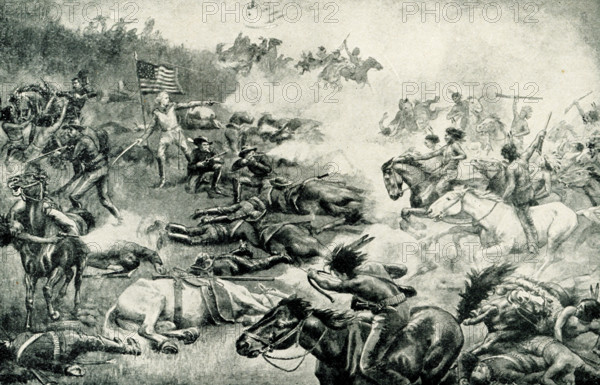
Légende
The Battle of the Little Bighorn, fought on June 25, 1876, near the Little Bighorn River in Montana Territory, pitted federal troops led by Lieutenant Colonel George Armstrong Custer (1839-76) against a band of Lakota Sioux and Cheyenne warriors. At mid-day on June 25, Custer’s 600 men entered the Little Bighorn Valley. Custer and some 200 men in his battalion were attacked by as many as 3,000 Native Americans; within an hour, Custer and all of his soldiers were dead. The Battle of the Little Bighorn, also called Custer’s Last Standm (seen here), marked the most decisive Native American victory and the worst U.S. Army defeat in the long Plains Indian War.
Crédit
Photo12/Universal Images Group/Ivy Close Images
Notre référence
UMG25A00_448
Licence
Droits gérés
Format disponible
53,5Mo (3,3Mo) / 45,7cm x 29,3cm / 5400 x 3466 (300dpi)